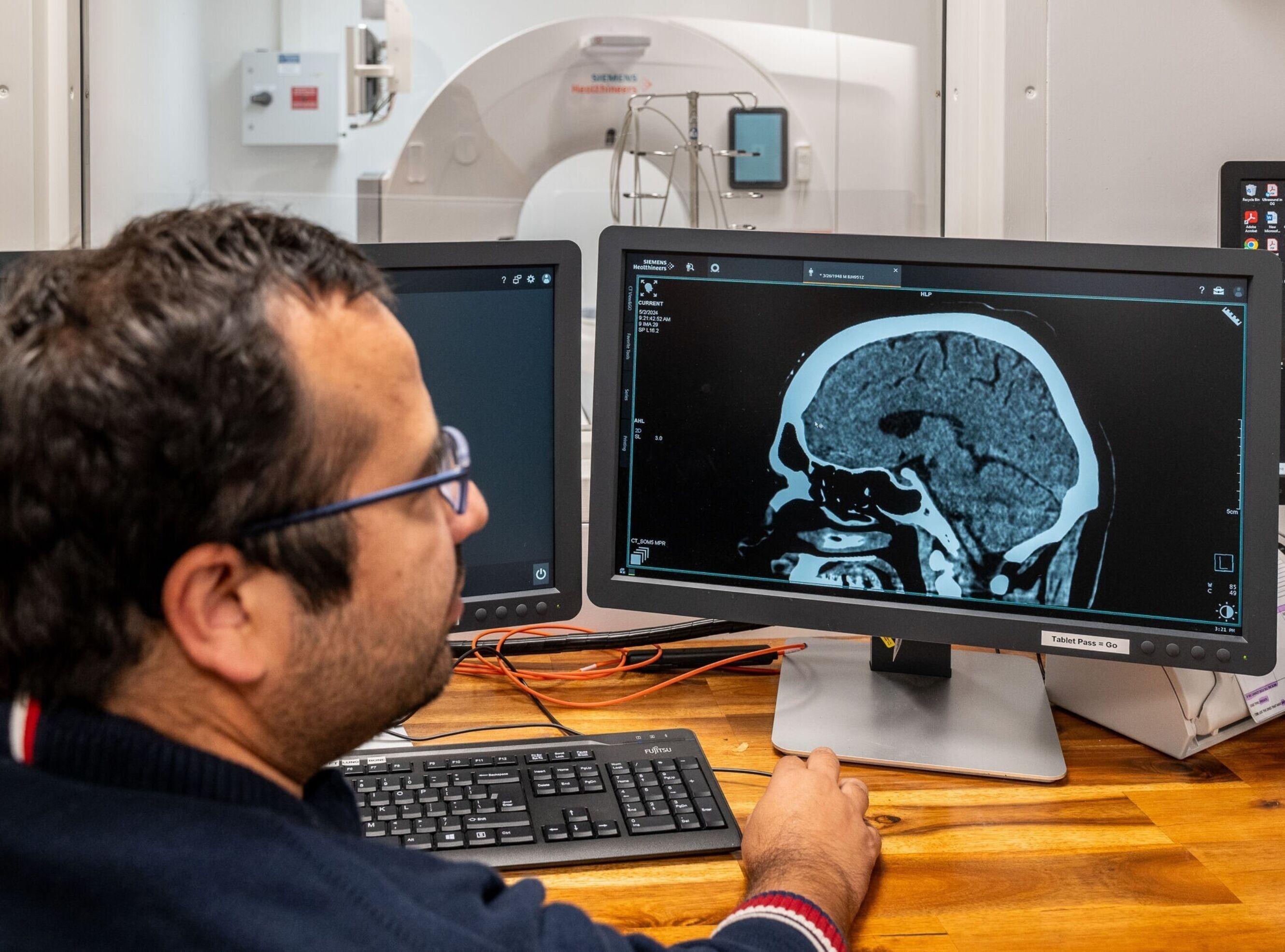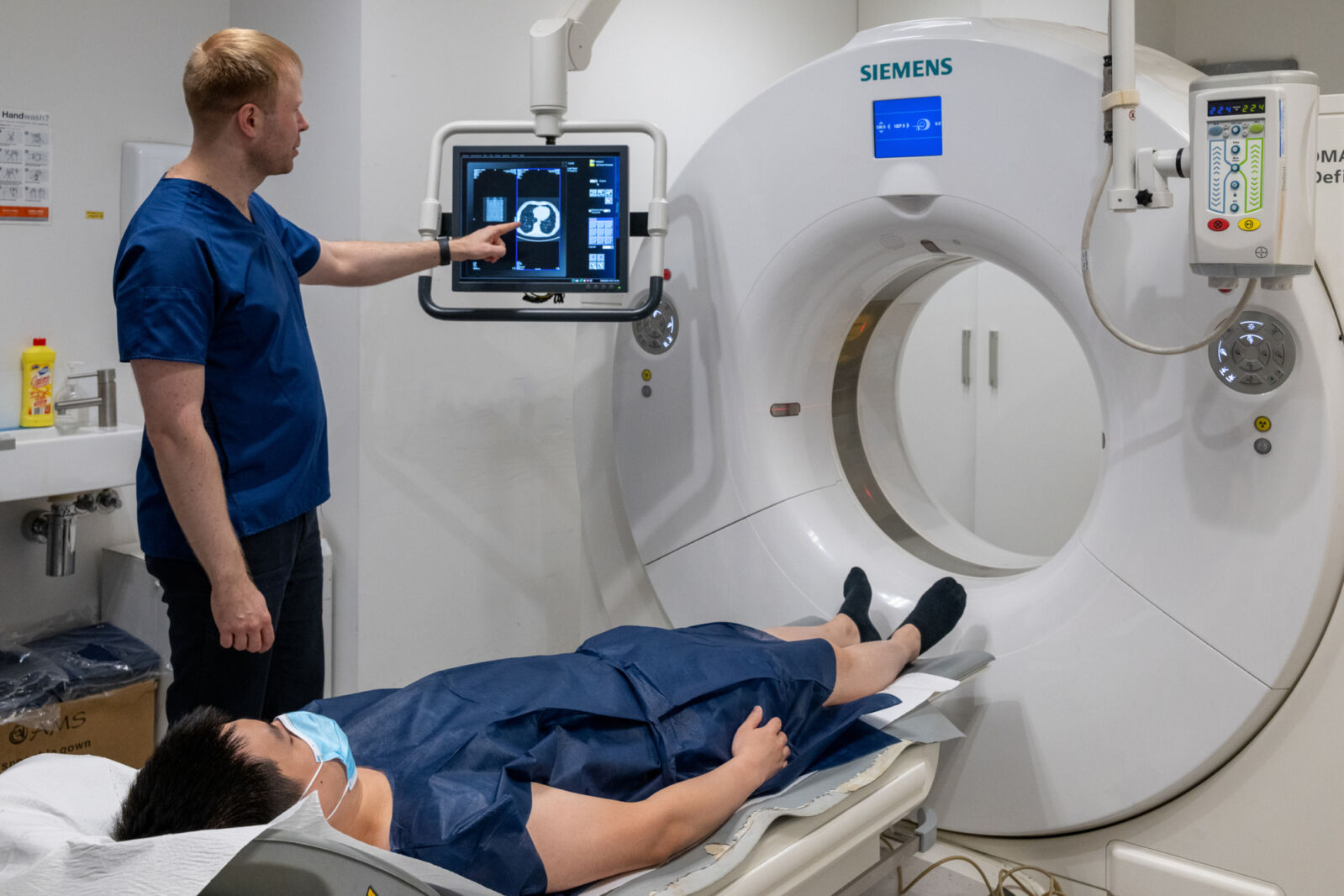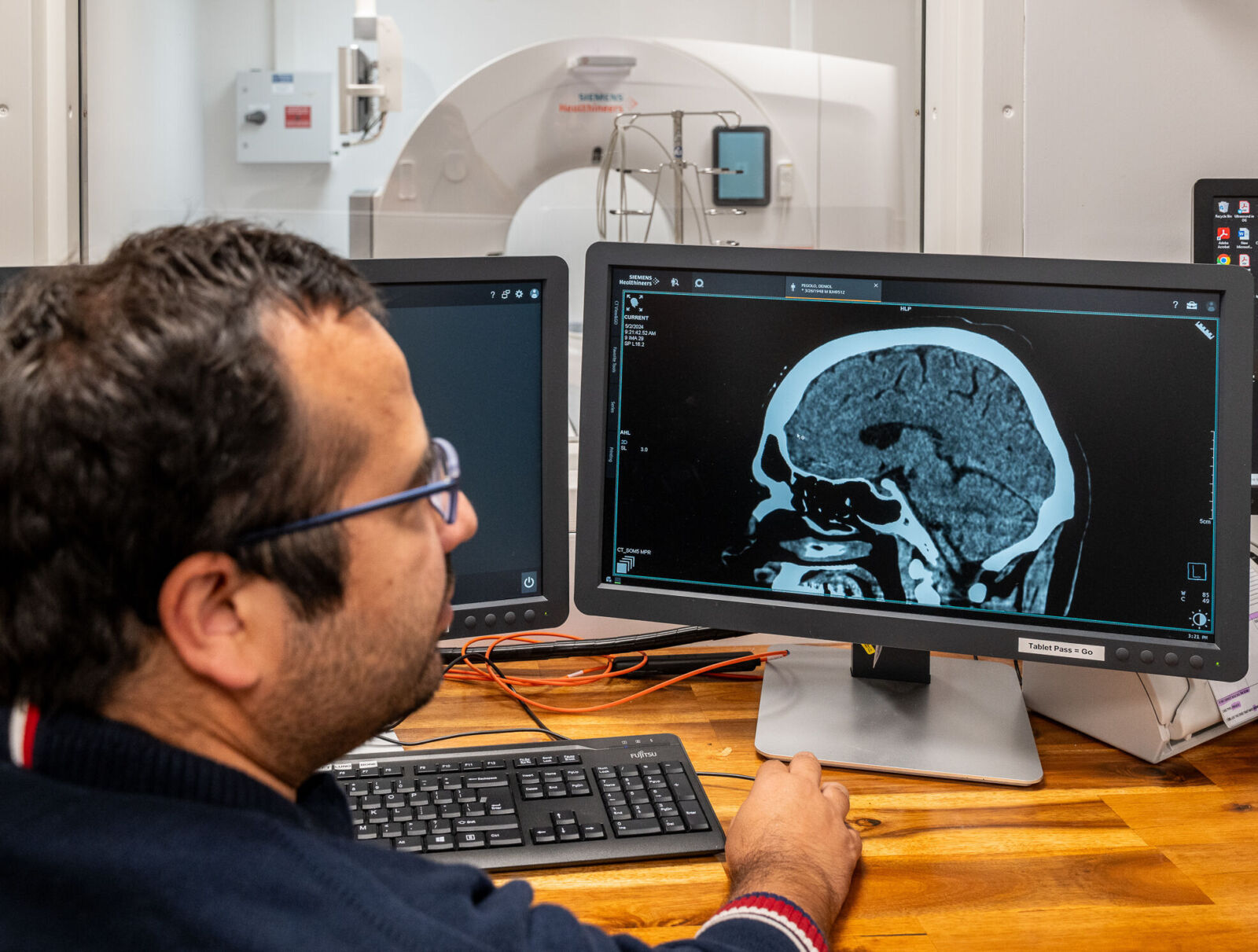
CT (Low-Dose CT) Scans
Computed Tomography (CT) is an imaging modality that uses advanced types of X-rays to create three-dimensional images. CT scans may be used to visualise internal organs, head, neck, spine as well as extremities.

CT Services
High Resolution, Low Dosage
Harbour Radiology has invested in a low-dose Siemens CT scanners across all our practices to reduce the dose of radiation for our patients without compromising the diagnostic effectiveness of imaging.
We offer CT at all of our practices for a wide range of different diagnostic purposes. We can scan the entire body, with and without contrast. Some specific CT scans in Sydney we offer are:
- Full Body CT
- High-Resolution CT
- Abdomen & Pelvis CT
- Liver CT
- CT Venogram
- Neck CT
- Hand CT
- Arm CT
- Chest CT
- Brain CT
- Leg CT
- Angiogram CT
- CT Enterography
- Cervical Spine CT
- Lumbar Spine CT
- Calcium Score Test
And many more! If your scan is not listed here, please feel free to reach out to our team.

CT Services: Common Uses and Diagnostic Procedure
CT scans use radiation to create 'slices' of the body. This allows for visualisation of the body in multiple slices which our Radiologists look through and use to identify any abnormal features.
During your CT procedure, you will be exposed to a small amount of radiation. At Harbour Radiology, we use modern Siemens CT technology, and our radiographers are highly trained to ensure that radiation doses are kept as low as reasonably possible while retaining the quality of images.
We are committed to ensuring you receive the highest quality of care with the lowest dose possible. Patient-centred care is our prime aim and our team of radiographers is trained to minimise radiation and to optimise image quality with approximately 60%* radiation dose reduction compared to the national average without sacrificing image quality.
*Dose calculation is subject to vary due to patient size and weight
Frequently Asked Questions
What is the cost of a CT scan?
We bulk bill almost all CT scans. CT Coronary Angiograms referred by a General Practitioner will cost $490. Coronary Calcium Scores always cost $150.
Please ask our reception team to confirm if your scan is bulk-billed.
How long does a CT scan take?
CT scanning takes between 10-30 minutes depending on the body region. This time can vary depending on the referral, please ask our reception team to confirm length of appointments.
What is IV 'contrast' or 'dye'?
For some CT scans, the radiographer injects intravenous iodinated contrast medium or dye to highlight certain blood vessels and organs. In these circumstances, you will be required to fast (nothing to eat) for 2 to 4 hours prior to your appointment. Drinking water is permitted to keep hydrated.
If an injection of contrast dye is required, our radiographers will discuss this with you before the procedure, and you will be asked to sign a consent form. During the injection, you may experience a warm sensation and notice a metallic taste in your mouth, which are normal reactions to the contrast agent and dissipate within a few minutes. Adverse reactions to the contrast agent are very rare, and our team at Harbour Radiology are fully trained in the unlikely event that one does occur.
Please inform us if you are taking any diabetic medication, have kidney disease or have had reactions to X-ray contrast dye in the past. Please bring a list of all your current medications to your appointment.
If you are pregnant or breast feeding it is imperative to advise our staff when booking your appointment.
Contrast is generally safe and adverse reactions are rare. At Harbour Radiology we always have a doctor present when contrast is given. However, you can deny the use of contrast and the scan can continue, but it may reduce the imaging quality.
If you have a contrast scan and you are over 70, have previous renal (kidney) failure or issues, please inform the staff when booking.
Please contact your referring doctor if you have any concerns about contrast, and ask our reception team if you are unsure if your scan will require it.
How to prepare for a CT Scan
At Harbour Radiology, our staff will advise you of any specific preparations when you make your appointment.
Stay well-hydrated and have a light meal on the day.
CT Coronary Angiogram (CTCA): You will be asked to arrive 60 minutes prior to your appointment to complete paperwork and you may need to take medication to slow your heart rate, as CTCA images are clearer when the heart rate is low.
Avoid caffeine on the day of the scan, including herbal tea, coffee,
chocolate and soft drinks as these can increase your heart rate and
impact on the quality of the scan.
It is also advised to avoid exercise for 24 hours prior to your scan.
Extremities such as ankle, knees and hips, sinus and spine CTs do not require any preparation.
For some CT scans, the radiologist injects intravenous iodinated contrast medium or dye to highlight certain blood vessels and organs. In these circumstances, you will be required to fast (nothing to eat) for 2 to 4 hours prior to your appointment. Drinking water is permitted to keep hydrated. Adverse reactions to the contrast agent are very rare, and our team at Harbour Radiology are fully trained in the unlikely event that one does occur.
Please inform us if you are taking any diabetic medication, have kidney disease or have had reactions to contrast dye in the past. Please bring a list of all your current medications to your appointment.
If you are pregnant or breast feeding it is imperative to advise our staff when booking your appointment.
Post CT Scan
Side effects from having a CT scan are very rare. If you need to have an injection of contrast dye it is quite common to experience a warm flush and/or a metallic taste in your mouth. Occasionally some patients may experience transient nausea or an itchy rash. These side effects, if they occur, do not last very long. Other more severe allergic reactions are extremely rare.